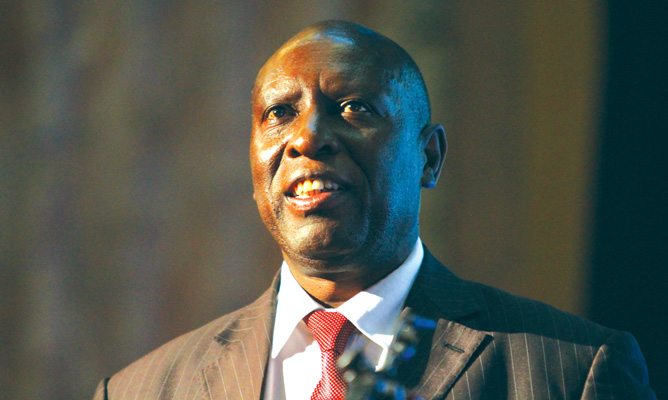A bill currently under parliament’s consideration will give civil servants power to turn down directives from ministers and other high-ranking government officials who may want to exert undue influence on how public tenders are awarded.

Gazetted last Friday, the Public Procurement and Disposal of Public Assets Bill seeks to end corruption in public procurement.
Corruption is estimated to be costing the country about US$1 billion annually.
The vice is more rampant in public procurement, where bigwigs in government take advantage of their influence to force accounting officers to comply with directives that advance their personal financial interests.
The bill comes in the wake of spiraling cases of abuse of public procurement processes.
In one of the case, Ministry of Higher and Tertiary Education officials are said to have abused their offices to siphon money out of the Zimbabwe Manpower Development Fund without following tender procedures.
Also recently, it was revealed that the Dema Diesel Power Plant was sanctioned by the Zimbabwe Power Company (ZPC) without going to tender.
Energy Minister, Samuel Undenge, was said to have ignored technical and expert advice disapproving the deal to cajole ZPC to go ahead with the project.
Once promulgated, government hopes to enhance transparency and bring about sanity to a system that has been abused by politicians in order to enrich themselves.
A new board called the Procurement Regulatory Authority of Zimbabwe would be created to replace the State Procurement Board (SPB).
In coming up with the new authority, it was felt that the SPB was not accountable to anyone since it was the sole decision-maker.
SPB’s successor will perform a monitoring role for procuring entities that will be responsible for managing procurement entities in a de-centralised manner.
To close any loopholes, a number of actors would now have to append their signatures for any deal to go through.
These include the Ministry of Finance, the auditor general, the accountant general and the secretary to the President and Cabinet.
This is meant to deter ministers from making unilateral decisions on who wins a tender, while also making procurement process as transparent as possible.
“If an accounting officer, such as a chief executive or accountant of a parastatal, is directed by a minister or a deputy minister or any other person with authority over the accounting officer to do or omits to do anything in respect of procurement, which the accounting officer believes he or she is not authorised to do in terms of this Act, he or she shall not comply with the directive, but instead shall forthwith submit in writing to the minister, deputy minister or other person in authority, as the case may be, his or her objections and the reasons for the objection,” says the Bill.
“If after receiving an accounting officer’s objections and reasons under subsection 1, the minister, deputy minister or other person instructs the accounting officer, in writing, to comply with the direction concerned, the accounting officer shall comply with the instruction and shall immediately submit a written report thereon to the minister responsible for administering the Act (and) to the auditor general,” says the Bill.
Provided that, if the minister, deputy minister or other person fails or refuses to put the instruction in writing, the accounting officer shall not comply with it and, notwithstanding any term or condition of his or her employment, shall not be liable to any penalty for such non-compliance.
The Act will be administered by the Ministry of Finance.
In this context, government ministries, State enterprises and local authorities will be capacitated through skills development to enable the accounting officers to effectively manage procurement. Financial Gazette






